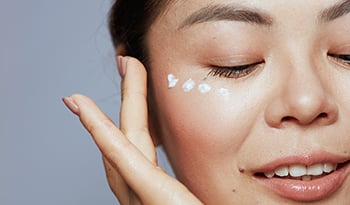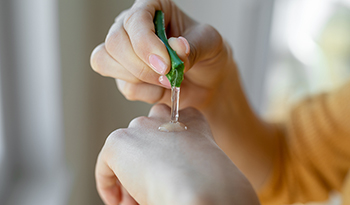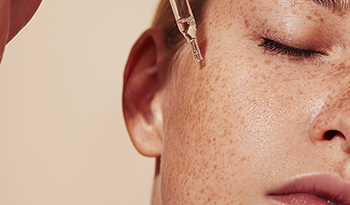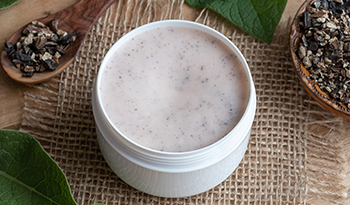Faedah Asid Poliglutamat untuk Kulit
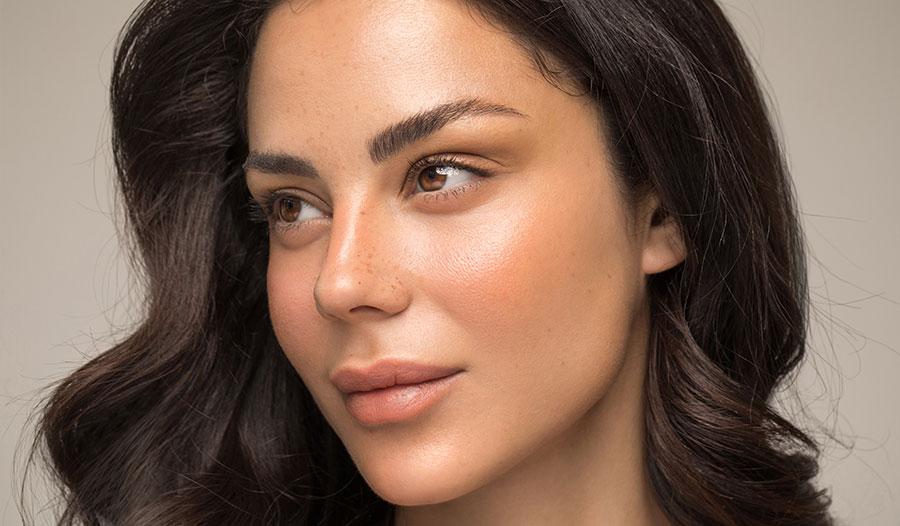
Kita semua ingin merawat kulit kita dengan produk yang paling inovatif yang mengandungi bahan-bahan terbaik dalam kelas. Dengan penjagaan kulit, penyelidikan sedang berjalan dan terdapat banyak perkara yang perlu diikuti. Bahan trend yang kita dengar lebih lanjut mengenai hari ini ialah asid poliglutamat. Ini bukan penemuan baru-polipeptida ini telah wujud selama bertahun-tahun tetapi terdapat banyak bunyi mengenainya baru-baru ini. Penyelidikan menunjukkan ia mempunyai banyak faedah dalam penjagaan kulit dan sifat yang serupa dengan asid hyaluronik dan gliserin. Tetapi adakah ia lebih baik daripada asid hyaluronik? Perlukah anda memasukkannya ke dalam rutin penjagaan kulit anda? Mari kita lihat lebih dekat asid poliglutamat dan apa faedahnya kepada rejimen penjagaan kulit kita.
Apakah Asid Poliglutamat?
Asid poliglutamat ialah polipeptida yang secara semula jadi berlaku di dalam badan kita dan ia sering disebut sebagai PGA. Polipeptida adalah protein yang terdiri daripada banyak rentetan asid amino. Di luar PGA yang berlaku secara semula jadi di dalam badan kita, asid poliglutamat berasal dari bakteria yang dihasilkan oleh kacang soya yang ditapai. Bahan-bahan yang ditapai juga bergaya dalam penjagaan kulit tetapi ini bukan bahan yang ditapai—ia hanyalah hasil sampingan proses penapaian. Juga, ia bukan sekadar ramuan yang bermanfaat dalam dunia kosmetik penjagaan kulit. PGA mempunyai faedah lain seperti penyembuhan luka dan sifat penghantaran dadah. Ia adalah bahan serba boleh, larut air dan tidak toksik dengan penyelidikan aktif yang berlaku di pelbagai ruang.
Bagaimanakah Asid Poliglutamat Memberi Manfaat Kulit Anda?
Asid poliglutamat adalah pelaku cemerlang dalam hal penghidratan. Bahan ini boleh menahan 5000 kali beratnya di dalam air dan merupakan humektan yang lebih kuat daripada asid hyaluronik. Ia mampu menarik lebih banyak kelembapan daripada asid hyaluronik. Semakin terhidrat kulit kita, semakin elastiknya. Ini menjadikan PGA bahan anti-penuaan yang sangat baik kerana ia memastikan kulit kita gemuk dan licin. Satu lagi manfaat kulit yang menarik yang muncul dalam penyelidikan adalah keupayaan asid poliglutamat untuk menghalang tubuh kita daripada memecahkan asid hyaluronik semulajadi. PGA juga memberikan manfaat penyembuhan luka kerana keupayaannya untuk mengekalkan kelembapan dan telah digunakan untuk penyembuhan luka dan pelekat selama bertahun-tahun.
Membandingkan Asid Poliglutamat dan Asid Hyaluronik
Soalan yang ditanyakan oleh ramai pencinta penjagaan kulit ialah: Adakah asid poliglutamat lebih baik daripada asid hyaluronik? Penyelidikan sedang berjalan tetapi ia pastinya ramuan yang semakin popular dan muncul dalam lebih banyak produk penjagaan kulit. Asid hyaluronik terkenal dengan keupayaannya untuk menarik dan mengekalkan air. Inilah yang menjadikannya penghidrat pahlawan. Tetapi asid poliglutamat memegang kelembapan lima kali lebih banyak daripada asid hyaluronik. Ini mungkin kelihatan seperti perbezaan yang besar, tetapi apa sebenarnya ia berlaku?
Asid hyaluronik berfungsi berbeza sebagai penghidrat kerana terdapat molekul asid hyaluronik bersaiz yang berbeza. Semakin kecil molekul, semakin baik ia dapat diserap oleh kulit kita. PGA adalah molekul yang lebih besar yang tidak dapat diserap oleh kulit kita sehingga kekal di permukaan. Walau bagaimanapun, ini tidak semestinya kualiti negatif. PGA membentuk filem di permukaan kulit kita dan menjadikannya kelihatan berkaca dan gemuk. Pada pendapat saya, sifat yang berbeza tidak semestinya menjadikan satu bahan lebih baik daripada yang lain dalam produk penjagaan kulit. Kenyataannya ialah kedua-dua gabungan itu boleh menjadi duo penjagaan kulit yang kuat.
Menggabungkan Asid Poliglutamat ke dalam Rutin Penjagaan Kulit anda
Asid poliglutamat boleh digunakan dua kali sehari dan terdapat kesan sampingan yang minimum. Memandangkan hakikat bahawa ia kekal di permukaan kulit kita, ia paling baik digunakan sebagai salah satu langkah terakhir dalam rutin penjagaan kulit yang komprehensif. PGA bertindak seperti meterai kerana membentuk filem di permukaan kulit kita. Ingat, langkah terakhir setiap rutin penjagaan kulit harus selalu menjadi pelindung matahari! Bagi orang yang mempunyai kulit sensitif, selalu disyorkan untuk menguji produk atau bahan baru pada kulit kecil terlebih dahulu.
Produk yang Mengandungi Asid Poliglutamat
Terdapat banyak pilihan produk penjagaan kulit yang luar biasa yang mengandungi asid poliglutamat. Untuk membantu anda menyempitkan beberapa pilihan untuk dipertimbangkan, saya mempunyai beberapa cadangan untuk produk yang mengandungi bahan yang akan datang ini. Terdapat produk untuk anda, sama ada serum, kabut, atau topeng yang anda cari.
Walaupun saya telah mengesyorkan beberapa produk dengan asid poliglutamat, terdapat banyak yang lain untuk ditemui dan dicuba. Sekarang setelah anda mengetahui segala-galanya mengenai PGA, anda boleh memasukkannya ke dalam rejimen penjagaan kulit anda dengan mudah. Saya melihatnya sebagai cara mudah untuk meratakan rutin harian saya, jadi cubalah jika anda ingin mendapatkan lebih banyak daripada rutin anda juga!
PENAFIAN:Hab Kesejahteraan ini tidak berhasrat untuk memberikan diagnosis...
















































































 Kandungan
Kandungan




